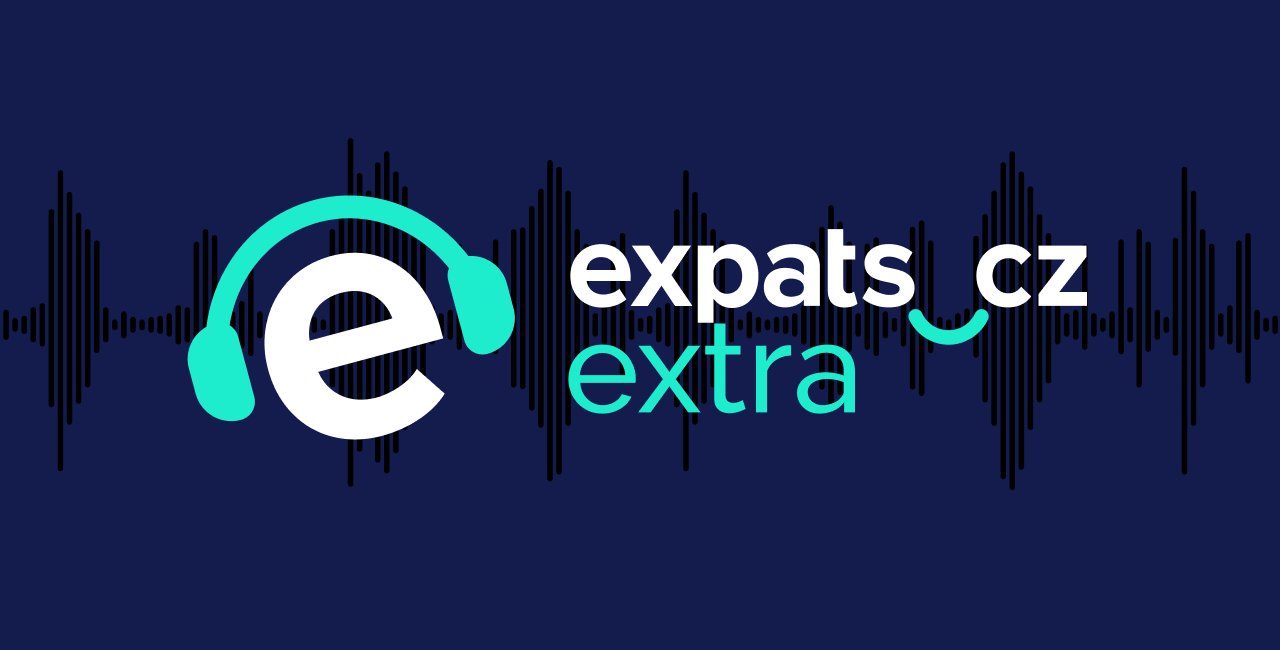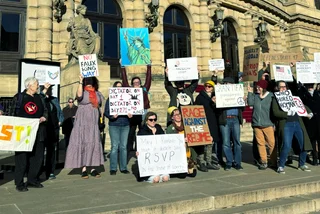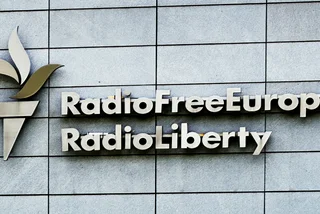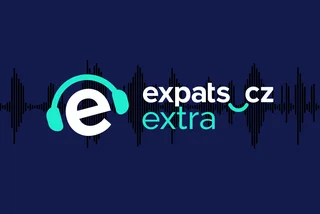Introducing a new podcast from Expats.cz, Expats Extra. Think of it as the cutting board of our newsroom, where snippets from our stories, behind-the-scenes reporting, and surprising soundbites come together each week. You can listen to the podcast on Spotify, Apple Music, or Podbean.
Show notes Bits and bytes for Oct. 24, 2025
[ELIZABETH]: The comment section can be a scary place these days. A train wreck you just can’t look away from. This week, one story really set it off. A report on the No Kings protest in Prague. Hundreds of readers weighed in. Many angry, asking three pointed questions. Why are foreigners protesting here at all? What does a rally about American democracy have to do with life in Czechia? And do expats even have the right to protest?
I’m Elizabeth Zahradnicek Haas, editor of Expat.cz. I’m American, I’ve lived in Prague for two decades, and I cover Czech politics and expat life. Those three angry questions, they’re exactly what we’re answering today.
Why are Expats protesting here at all?
Show me what democracy looks like. This is what democracy looks like. This is what democracy looks like.
[ELIZABETH]: Saturday morning, about forty people gather on the steps of Prague’s Rudolfinum concert hall. Some hold signs reading No Kings. Others unfurl an American flag. A man steps forward to address the crowd. That’s Geoff Klimko, an American who’s lived here for years. His daughter and his dog, Pickles. Look on.
[GEOFF KLIMKO]: Prague is a really apt location for today’s No Tyrants, No Kings rally. A city that has shown generations of Czechs how to face power without fear. These streets you’re standing on now reverberate with the memories of the Velvet Revolution and the jangling of keys, and a stubborn insistence on truth.
[GEOFF KLIMKO]: People are afraid to say, to speak their mind in America right now. And we’re able to gather. We’re able to speak whatever we want to say. It’s I feel completely different here than I would. I wouldn’t even be giving that talk. Uh, yeah. If I was in America right now.
[ELIZABETH] Next, Paul Von Blum takes the microphone. He’s a civil rights activist and visiting UCLA professor who’s been teaching American studies at Masaryk University in Brno. His warning is stark.
[PAUL VON BLUM] In 1944, the Gestapo came to Berlin and they took my grandparents and my aunt and uncle out of their apartment, and they put them on a boxcar, and they took them to Auschwitz, where they murdered them. That’s a fair comparison. [Tom] Homan and Stephen Miller are monsters. They are monsters.
[ELIZABETH] Extreme, maybe, but his alarm about democracy’s fragility isn’t just about America. A couple of weeks ago, Filip Turek, leader of the motorist party and the coalition’s nominee for foreign minister, was accused of posting racist and anti-Semitic content on Facebook.
[PAUL VON BLUM] I would say the proposed Minister for Foreign Affairs is, I think, very dangerous. Suddenly, that small protest on the Rudolfinum steps isn’t just about American politics anymore.
[ELIZABETH] For those wondering why this matters to them, Turek represents the same strain of politics von bloom is warning about the same ideology, different flag.
Do foreigners even have the right to protest in Czechia?
[ELIZABETH] So the first question from those angry commenters. Do foreigners even have the right to protest here? The answer is yes, and it’s protected by law.
Okay, can you hear me? Okay.
[ONDŘEJ PREUSS] Yes, yes.
[ELIZABETH] Constitutional lawyer Ondřej Preuss is an attorney and researcher at the Faculty of Law, Charles University. He explains that the Czech constitution doesn’t just allow it, it guarantees it.
[ONDŘEJ PREUSS] Yeah. The freedoms are for everyone, not only for citizens of of Czech Republic.
[ELIZABETH] A foreigner could not face legal trouble for speaking out against their own government, or the Czech government, or any government, if they are peaceful.
[ONDŘEJ PREUSS] Exactly. If they are peaceful.
[ELIZABETH] That right extends far beyond local politics. Even demonstrations about conflicts thousands of kilometers away are protected in general.
Of course, you can protest against Israel or genocide. There could be also, of course, limitation. When this protest would be some kind of approval of terrorism.
[ELIZABETH] So in no way, if you are protesting in a peaceful non-supporting of terrorist way against, Israel you cannot be deported or have your visa revoked or anything like that.
[ONDŘEJ PREUSS] Constitutional right to freedom of expression.
[ELIZABETH] That’s in one of Europe’s most pro-Israel countries. The law protects, even protests against Israeli policy. Peaceful dissent trumps political alignment.
Preuss says this protection comes from history.
It’s very safe to protest in the Czech Republic, very liberal. Uh, from this perspective, it’s kind of a reaction to the, you know, authoritarian regime before the Velvet Revolution.
[ELIZABETH]: A country that once jailed dissidents, now protects American protesters more effectively than its own government does. But Preuss points out something else. In the U.S., constitutional protection doesn’t mean freedom from consequences.
[ONDŘEJ PREUSS] In America, the speech is really free, I would say. But it could also have other consequences, for example, on your employment or even in your education.
What does a rally about American democracy have to do with Europe?
[ELIZABETH]: Our own comments section this week showed how online spaces have become a different kind of battlefield. The fury that erupted after our protest story that’s not unique to us.
[ELIZABETH]: Pavol Szalai directs the Prague office of Reporters Without Borders, the international press freedom watchdog. He’s been tracking how hate speech has migrated from fringe spaces to the mainstream.
[PAVOL SZALAI] Let’s be honest about it. It’s not in the media where you find the most hate speech. It’s online. It’s on the social networks.
[ELIZABETH]: Reporters Without Borders is pushing the European Union to force tech giants like Meta and Google to promote credible journalism over outrage.
[PAVOL SZALAI] So our long-term goal is to make the European Union oblige the digital platforms, social networks, search engines to promote reliable information produced by journalists. The European legislation, which is new, the European Media Freedom Act, has done a first step in this regard.
[ELIZABETH]:That battle just got harder because the country that once led the world in defending press freedom is now undermining it. I actually think the US has become a country which supports press freedom predators, and which participates in the destruction of independent media. Broadcasting to dictatorships. So this is really a big change of paradigm.
[PAVOL SZALAI] Czech Republic is tenth out of one hundred and eighty countries in the index, and the U.S. is about forty places further down. It has a different color on our map. It’s orange, yellow, orange, not green like Czech Republic. Orange.
[ELIZABETH]: The color Reporters Without Borders uses for countries with problematic situations for journalists. Then Szalai tells me something I have to ask him to repeat.
[PAVOL SZALAI] For the first time in our history, we filed a complaint against the U.S. government, an organization that monitors dictatorships and authoritarian regimes worldwide, filed its first ever complaint against the United States.
[ELIZABETH]: Why does that matter here? Because American funding cuts don’t just affect American media. They threaten independent journalism across Central Europe, including Czech Republic. And because when press freedom collapses, every other right starts to crumble with it.
Without freedom, there is no press freedom. Without independent media, there is no independent media without safe journalists. One wise man once said that press freedom is the one freedom that allows us to verify the existence of all other freedoms, including the freedom to protest, including the freedom to protest.
[ELIZABETH]: The freedom to dissent, the freedom to stand on the steps of the Rudolfinum and say no kings. Right now, Czechia’s new government is forming. Public media face fresh political pressure. The plans on the table could threaten their independence.
[PAVOL SZALAI] We believe that in Europe, one of the strongholds of independent journalism is public media. Unfortunately, the U.S. doesn’t have strong public media. The European countries do have them, where they have not yet been politicized. And it’s the case of Czechia. So one of our main missions will be to defend independent public service media in Czechia. Also in other European countries.
[PROTESTORS] This is what democracy looks like. This is what democracy looks like. Let’s do that again together. Alright, ready? Show me what…
[ELIZABETH]: So back to those comments asking why Americans protesting Trump matters in Prague. Here’s what they got wrong. They thought American politics was separate from life in Czechia. But when Czech politicians post the same content that American protesters are warning about, when a press freedom organization files its first-ever complaint against the U.S. government to protect European journalism, when Americans feel safer protesting in Prague than at home. That’s not American politics.
That’s the fight for democratic space becoming a single global battle.
[ELIZABETH]: And this is the place you want to raise your daughter?
[GEOFF KLIMKO]: Oh, absolutely.
[ELIZABETH]: I heard you say, Don’t worry, we’re not moving.
[GEOFF KLIMKO]: Yeah. And she has cousins in Chicago and they have active shooter drills at their school. And I cannot imagine the fear and the concern that I would have.
[ELIZABETH]: The No Kings protest wasn’t about exporting American problems to Prague. It was about recognizing that the threats to democracy don’t respect borders, and neither can the people defending it.
Democracy isn’t geography anymore. It’s a choice you make about where and how you stand up. And if you think you can sit that one out, the comment section will find you.
This episode of Expats Extra was written, researched, and reported by Elizabeth Zahradnicek Haas, edited by Anica Mancinone, audio editing by Daniel Zahradníček, with help from Alexis Carvajal. Follow Expats Extra wherever you get your podcasts so you never miss a story.



